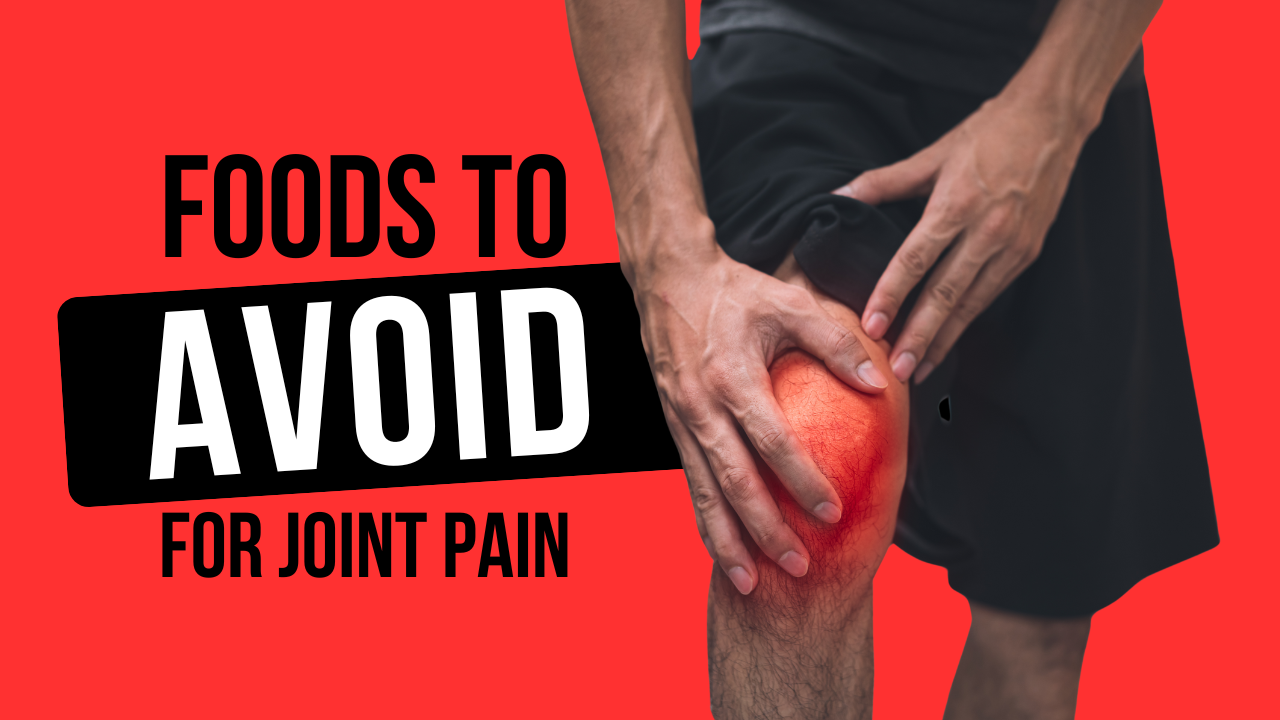Foods to Avoid for Joint Pain
Sep 15, 2025
Foods to Avoid for Joint Pain: A Clinical Nutrition Guide
1.) All Grains (Refined or Whole, Gluten AND Gluten-free)
Typical grain products—wheat, barley, rye, oats, rice, corn, and even so-called “whole grain” options—contain proteins and compounds that can provoke inflammation in sensitive individuals. Baked goods, bread, pasta, cereal, crackers, and tortillas are common sources.
While it is essential for those with celiac disease to avoid gluten (the main protein in wheat, barley, and rye), research now suggests that even whole grains can worsen joint pain for some people due to many other proteins not beneficial for human consumption such as Gliadin, their impact on gut health, immune responses, and the potential to fuel systemic inflammation.
Some studies indicate that eliminating grains can reduce markers of inflammation and improve joint-related symptoms. However, response time may vary. The only way to know if removing grains helps is to try a grain-free approach for a few weeks and monitor your symptoms.
SUMMARY:
Anyone experiencing joint pain should consider excluding ALL grains on a trial basis. Focus on less processed, naturally anti-inflammatory foods instead.
Note: Many packaged products advertised as “grain-free” may be loaded with other problematic ingredients like sugar, gums, or unhealthy fats—always check labels.
Allow ONLY unrefined seeds:
- Quinoa
- Amaranth
- Buckwheat
- These seeds are naturally gluten-free, high in antioxidants, have low-allergen potential, and support anti-inflammatory pathways.
2.) Dairy Products
Emerging research shows that dairy can contribute to inflammation and pain, especially for adults who have reduced ability to digest lactose. For some, dairy also disrupts gut bacteria, raises blood sugar, and triggers flares in those with joint conditions.
Try removing all forms of dairy (milk, cheese, yogurt, butter) for a few weeks, then reintroduce one at a time to monitor joint response. Substitute with nut- or seed-based milks and cheeses when needed.
SUMMARY:
Elimination and careful introduction of the proper alternatives are the best ways to determine your personal experience with animal based dairy.
3.) Processed Meats
Cured meats (sausage, bacon, deli meats, corned beef) are loaded with sodium, nitrites, and purines—all of which increase water retention, raise blood pressure, and worsen inflammation-based joint pain.
Avoid all processed meats, and always check labels for sodium content—a single teaspoon of salt exceeds the recommended daily level for most adults.
SUMMARY:
Avoid processed and salty meats, opt for leaner, unprocessed protein sources to lower joint stress.
Note: Sodium from hydration mixes for electrolyte balance is carefully measured and DOES NOT exert the same harmful effects as processed food sources.
4.) Sugar & Fruit Juice
Foods and drinks high in added sugar or fructose spike blood sugar, contribute to fat gain (especially visceral fat around organs), and promote production of advanced glycation end products (AGEs), which accelerate joint deterioration and aging.
The most commonly overlooked “hidden” sugar sources include fruit juice, sauces, flavored yogurts, granola bars, condiments, and processed cereals.
SUMMARY:
Severely restrict all forms of added sugar. If sweetness is desired, use natural, non-caloric options like stevia or monk fruit.
5.) Industrial Seed Oils
Heavily processed oils—canola, corn, cottonseed, soybean, safflower, and rice bran—contain high omega-6 fats and are present in nearly all pre-made and restaurant foods. These oils fuel inflammation and are linked with increased joint pain.
Instead, cook only with extra virgin olive oil, 100% avocado oil, or walnut, sesame oils. For salads, stick with olive or avocado oil as a base.
SUMMARY:
Avoid all packaged foods and restaurant items made with industrial seed oils. Read labels and choose minimally processed, healthy fats.
6.) Focus: The Power of Unrefined Seeds (Quinoa, Amaranth, Buckwheat)
These seeds, unlike grains, offer:
- Superior antioxidant and anti-inflammatory compounds (quercetin, rutin, proanthocyanidins)
- Easily digestible, hypoallergenic protein
- Physiological benefits demonstrated in clinical studies: reduction in pro-inflammatory cytokines (IL-1β, IL-6, TNF-α) and protection against oxidative stress
- Fiber and micronutrients that support gut, immune, and joint health
How to Use:
Replace ALL grains (including so-called ancient “gluten-free” grains like millet, teff, rice, oats, and sorghum) with these three seeds. Prepare as porridge, salad, pilaf, or gluten-free baked goods base.
Bottom Line:
For chronic joint pain and inflammation, eliminate all grains and industrialized foods, dairy and sugar elimination, and base your carbohydrate foods on organic roots, quinoa, amaranth, and buckwheat seeds.
Ready to experience real relief and discover which foods truly nourish your unique body?
Schedule your initial consultation with Dr. Laleh today to take a deeper dive into your personal biology and genetics. Uncover the root causes of your inflammation and learn about a fully customized nutrition plan designed just for you.
Empower your healing—book your session now!
Do you want to learn more about this and other topics? Reach out and let’s chat.
Contact Us
Have questions or need support on your wellness journey? We’re here to help. Reach out with any inquiries about programs, consultations, or resources, and our team will get back to you shortly.
We hate SPAM. We will never sell your information, for any reason.

